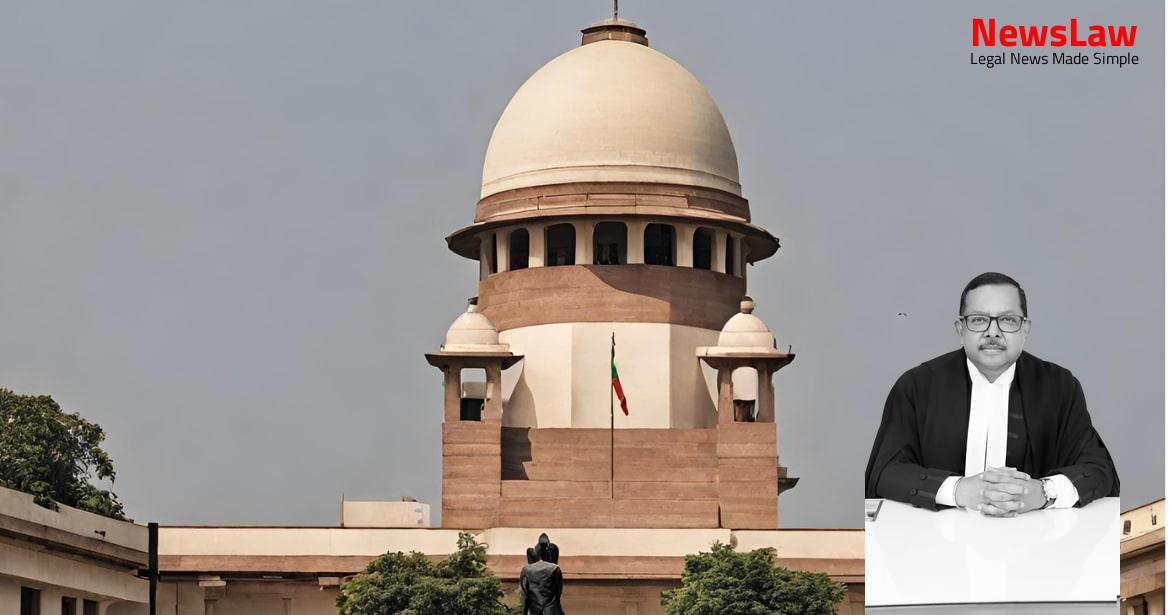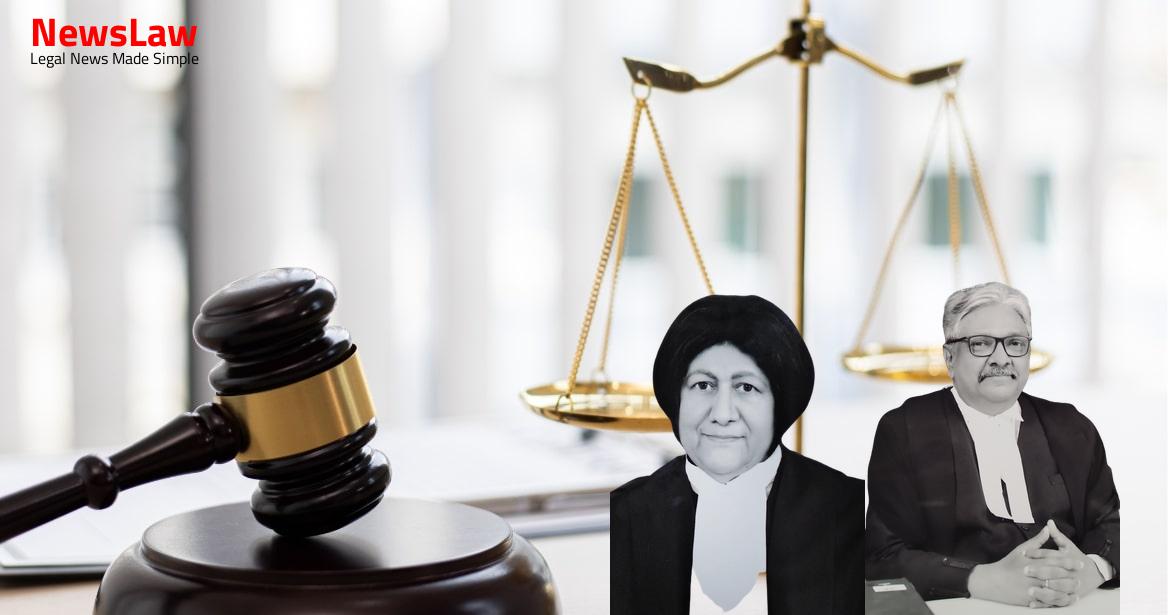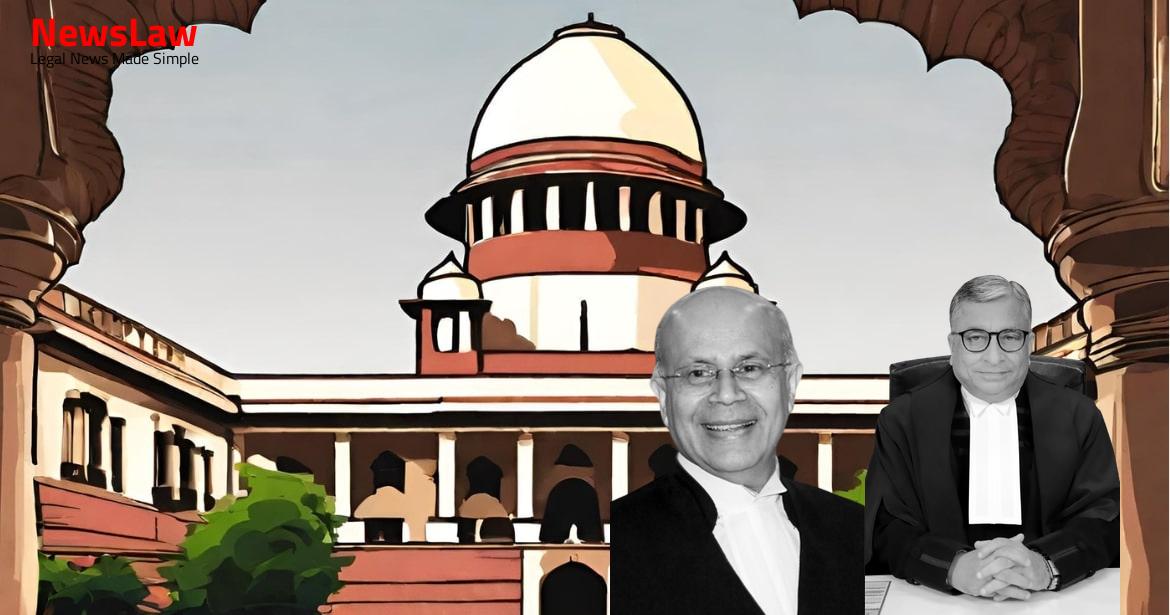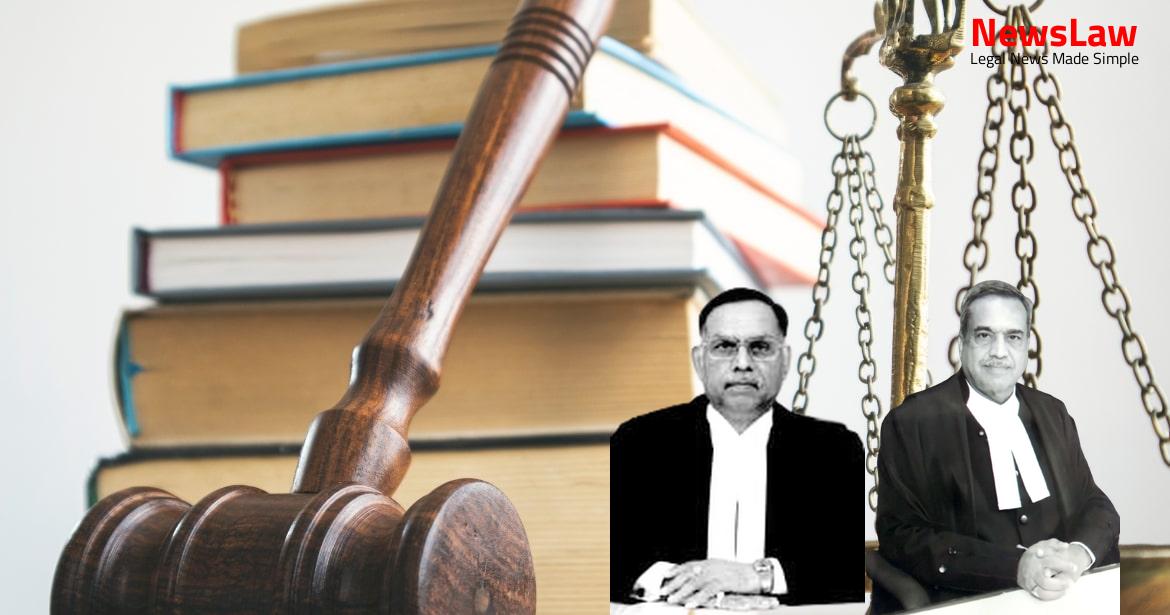Appellants i.e., Union of India, Director General of Foreign Trade and Joint Director General of Foreign Trade by means of this civil appeal have taken exception to the judgment and order dated 22.08.2008 passed by a Division Bench of the High Court of Karnataka, Circuit Bench at Dharwad in Writ Appeal No.356 of 2006 affirming the judgment and order of the learned Single Judge dated 22.09.2005 allowing Writ Petition No.45525 of 2004 filed by the respondent. Certain 3 benefits under ‘deemed export’ were also included in the said Exim Policy. Respondent completed the construction work awarded to it in the month of March, 1996 and thereafter filed applications dated 25.03.1996, 13.09.1996 and 20.12.1996 claiming drawback for Rs.35,75,679.00, Rs.88,98,206.00 and Rs.85,05,853.00 respectively. By endorsements dated 10.11.1996, 06.12.1996 and 31.12.1996, Director General of Foreign Trade (for short ‘DGFT’ hereinafter) rejected the applications of the respondent for duty drawback on the ground that supplies in civil construction work were not eligible for ‘deemed export’ benefit.
Consequently, in supersession of the earlier rejection order dated 21.06.2002 and in the light of the decision of the Policy Interpretation Committee dated 07.10.2002, DGFT vide the order dated 01.11.2002 permitted duty drawback of Rs.2,05,79,740.00 to the respondent. Thereafter cheques for Rs.25,00,000.00, Rs.63,23,575.00, Rs.81,05,583.00 and Rs.56,50,312.00, totalling Rs.2,25,79,470.00 vide endorsements dated 31.03.2003 and 20.05.2003 were issued. After observing that there was delay in payment of duty drawback, learned Single Judge held that respondent would be entitled to interest for delayed payment of duty drawback.
Respondent also filed Writ Appeal No.3699 of 2005 assailing the direction of the learned Single Judge to pay interest only from 05.12.2000. Vide the judgment and order dated 22.08.2008, the Division Bench opined that respondent would be entitled to interest from the date of expiry of three months after submitting the applications for refund of duty drawback in the year 1996 at the rate of fifteen percent as awarded by the learned Single Judge.
It is in such circumstances that a Policy Interpretation Committee was constituted by the DGFT which examined the case of the respondent and vide its decision dated 07.10.2002 decided to extend the benefit of duty drawback to the respondent as a special case. He, therefore, submitted that the present is a fit case for interfering with the decision of the learned Single Judge as affirmed by the Division Bench. Referring to the provisions of Section 27A of the Customs Act, 1962 (referred to as the ‘Customs Act’ hereinafter), learned senior counsel submitted that the High Court had taken a rather conservative figure considering the legislative scheme while awarding interest at the rate of fifteen percent to the respondent.
The person chargeable with duty may either before service of notice pay on the basis of his own ascertainment or the duty ascertained by the Central Excise Officer, the amount of duty along with interest payable thereon under Section 11AA. It says that if any duty ordered to be refunded under sub-section (2) of Section 11B to any applicant is not refunded within three months from the date of receipt of the application under sub- section (1) of that section, there shall be paid to such applicant interest at such rate not below five percent and not exceeding thirty percent per annum as for the time being fixed by the Central Government, by notification in the Official Gazette. As per sub-section (1), any person claiming refund of any duty or interest paid by him or borne by him, may make an application in the prescribed form and manner, for such refund addressed to the designated authority before the expiry of one year from the date of payment of such duty or interest.
However, as per the proviso, the amount of duty and interest so determined shall be paid to the applicant instead of being credited to the Consumer Welfare Fund if such amount is relatable, 13 amongst others, to drawback of duty payable under Sections 74 and 75 of the Customs Act. Sub-section (1) of Section 75A says that, where any drawback payable to a claimant under Section 74 or Section 75 is not paid within a period of one month (earlier it was two months and prior thereto it was three months) from the date of filing a claim 14 for payment of such drawback, there shall be paid to that claimant in addition to the amount of drawback, interest at the rate fixed under Section 27A from the date after the expiry of the said period of one month till the date of payment of such drawback. Section 4 declares that all orders made under the Imports and Exports (Control) Act, 1947 and in force immediately before the commencement of the 1992 Act shall so far as they are 15 not inconsistent with the provisions of the 1992 Act would continue to be in force and shall be deemed to have been made under the 1992 Act. Rule 2(e) of the Foreign Trade (Regulation) Rules, 1993, framed under the 1992 Act, defines the word ‘policy’ to mean export and import policy formulated and announced by the Central Government under Section 5.
As per Section 56 (ii)(3), supplies made to projects financed by multilateral or bilateral agencies like the International Bank for Reconstruction and Development would be entitled to duty free import of raw materials, components, intermediates, consumables, parts, spares including mandatory spares and packing materials to main/sub-contractors for the manufacture and supply of products to such projects. Section 122 provides that ‘deemed exports’ shall be eligible for the benefits in respect of manufacture and supply of goods qualifying as ‘deemed exports’, including under the Duty Drawback Scheme. Sub-rule (1) says that the drawback under the Customs, Central Excise Duties and Service Tax Drawback Rules, 1995 (briefly ‘the 1995 Rules’ hereinafter) and interest, if any, shall be paid by the proper officer of customs to the exporter or to the agent specially authorized by the exporter to receive the said amount of drawback and interest.
At this stage, we may mention that in exercise of the powers conferred by Section 27A of the Customs Act, the Central Board of Excise and Customs had issued notification bearing No.32/1995 (NT)-Customs dated 26.05.1995 fixing the rate of interest at fifteen percent for the purposes of Section 27A of the Customs Act. Circular dated 20.08.1998 says that the issue as to whether supply of goods and services to civil construction projects would be entitled for deemed export benefit or not had been examined in detail, whereafter it was clarified that supply of goods under paragraph 10(2)(d) of the Exim Policy would be entitled to deemed export benefit. It was, therefore, clarified that all such directly supplied items, whether imported or indigenous, and used in the projects, the condition ‘manufactured in India’, a pre-requisite for grant of deemed export benefit, was satisfied in view of the fact that such activities being undertaken at the project site constituted ‘manufacture’ as per the definition provided in the Exim Policy. One of the agenda items 22 deliberated upon in the said meeting was the claim of the respondent regarding inclusion of excise duty component in the price quoted before the project authority as a case of deemed export and refund of the same through the duty drawback route.
From a perusal of the minutes of the meeting of the Policy Interpretation Committee held on 07.10.2002, it is evident that the committee had opined to extend the deemed export benefit to those firms which included excise duty component in the tender pricing quoted before the project authority such as the respondent.
At that stage, respondent submitted representations contending that there was delay in the refund of drawback and therefore, it was entitled to interest from the relevant date at the rate of fifteen percent in terms of the notification No.22/95 dated 29.05.1995 (we may mention that the respondent had placed reliance on the aforesaid notification which fixed interest at the rate of fifteen percent for delayed refund of duty under Section 11BB of the Central Excise Act). After observing that the Customs Act provides for interest on delayed refund within the range from five percent to thirty percent, learned Single Judge directed the appellants to pay interest on the delayed refund from the date of the clarificatory circular dated 05.12.2000 till the date of payment within a period of three months. On the other hand, respondent also filed a writ appeal being Writ Appeal No.3699 of 2005 assailing the directions of the learned Single Judge to pay interest only from the date of the circular dated 05.12.2000.
Thereafter, the Division Bench analysed the circular dated 05.12.2000 and upon such analysis it was observed 26 that the position vis–vis refund of duty drawback in civil construction work treating it as deemed export was clarified in an earlier circular dated 20.08.1998. Padmini Chandrasekharan (dead) by Lrs., and (2004) 8
SCC 1 Zile Singh versus State of Haryana, the Division Bench opined that the minute the Exim Policy came into force the benefit of duty drawback automatically became available to the respondent and that the clarification was only with regard to the doubts expressed in some quarters as to whether civil construction works were also entitled to such benefit. The Division Bench held that the respondent would be entitled to interest from the date of expiry of three months after submission of applications for refund back in the year 1996 till the time the payment was made at the rate of fifteen percent as awarded by the learned Single Judge.
Section 56 provided that a special imprest licence was granted for the duty free import of raw materials, components, consumables, parts, spares including mandatory spares and packing materials to main/sub-contractors for the manufacture or supply of products when such supply were made to projects financed by multilateral or bilateral agencies, such as, the International Bank for Reconstruction and Development under international competitive bidding or under limited tender system. Section 121 declares that the categories of supply of goods mentioned in the said section would be regarded as ‘deemed export’ under the Exim Policy provided the goods were manufactured in India and the payment was received in Indian rupees. In fact, under the definition clause of the 1995 Rules, duty drawback, in relation to any goods manufactured in India and exported has been defined to mean the rebate of duty or tax chargeable on any imported materials or excisable materials used or taxable services used in the manufacture of such goods.
As we have seen, respondent is entitled 31 to refund of duty drawback as a deemed export under the Duty Drawback Scheme. The High Court while awarding interest at the rate of fifteen percent per annum, however, did not 32 refer to such notification; rather, there was no discussion at all as to why the rate of interest on the delayed refund should be fifteen percent. OKA]…………………………………
J.
Case Title: UNION OF INDIA Vs. M/S. B.T. PATIL AND SONS BELGAUM (CONSTRUCTION) PVT. LTD. (2024 INSC 83)
Case Number: C.A. No.-007238-007238 / 2009



